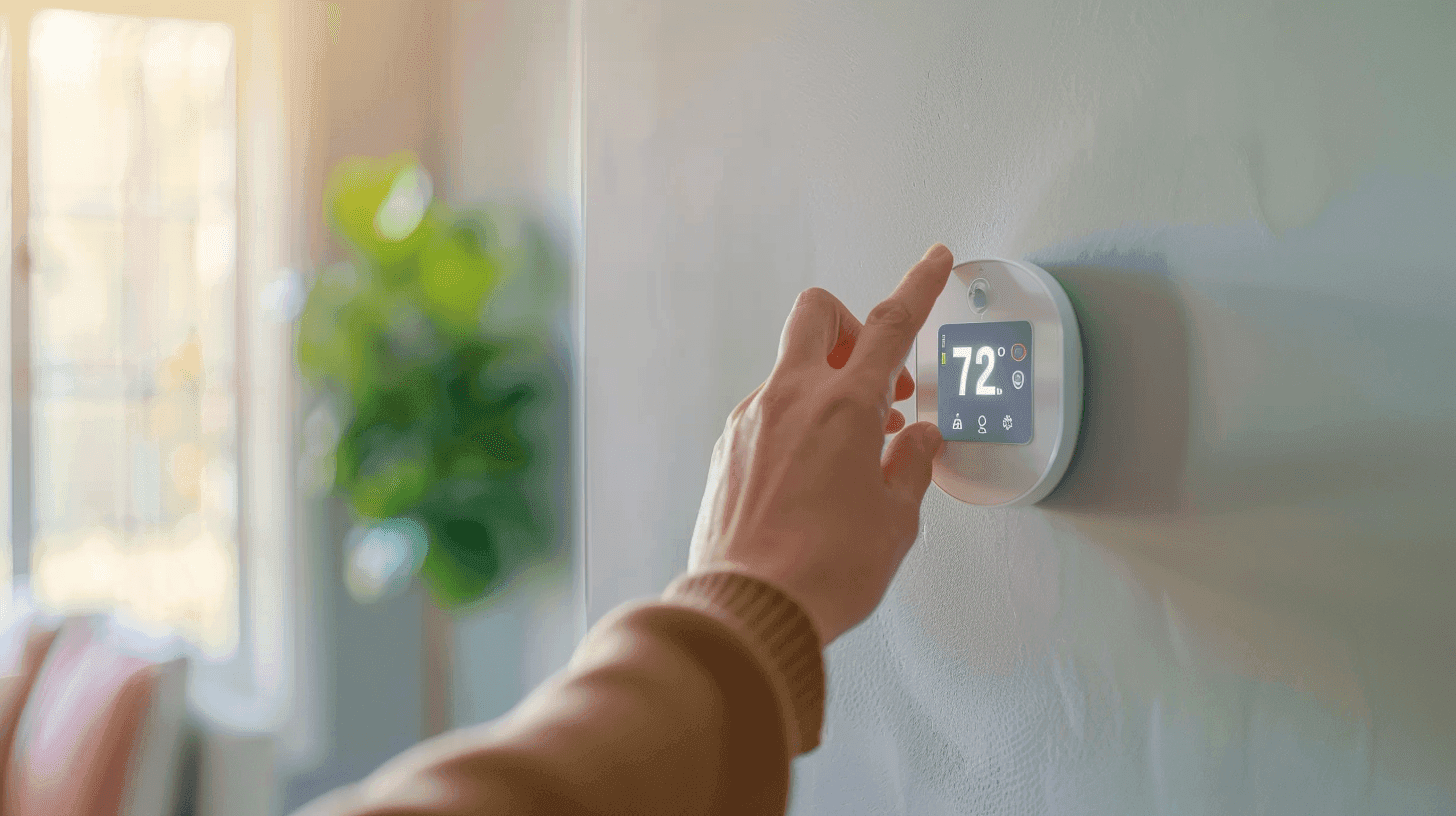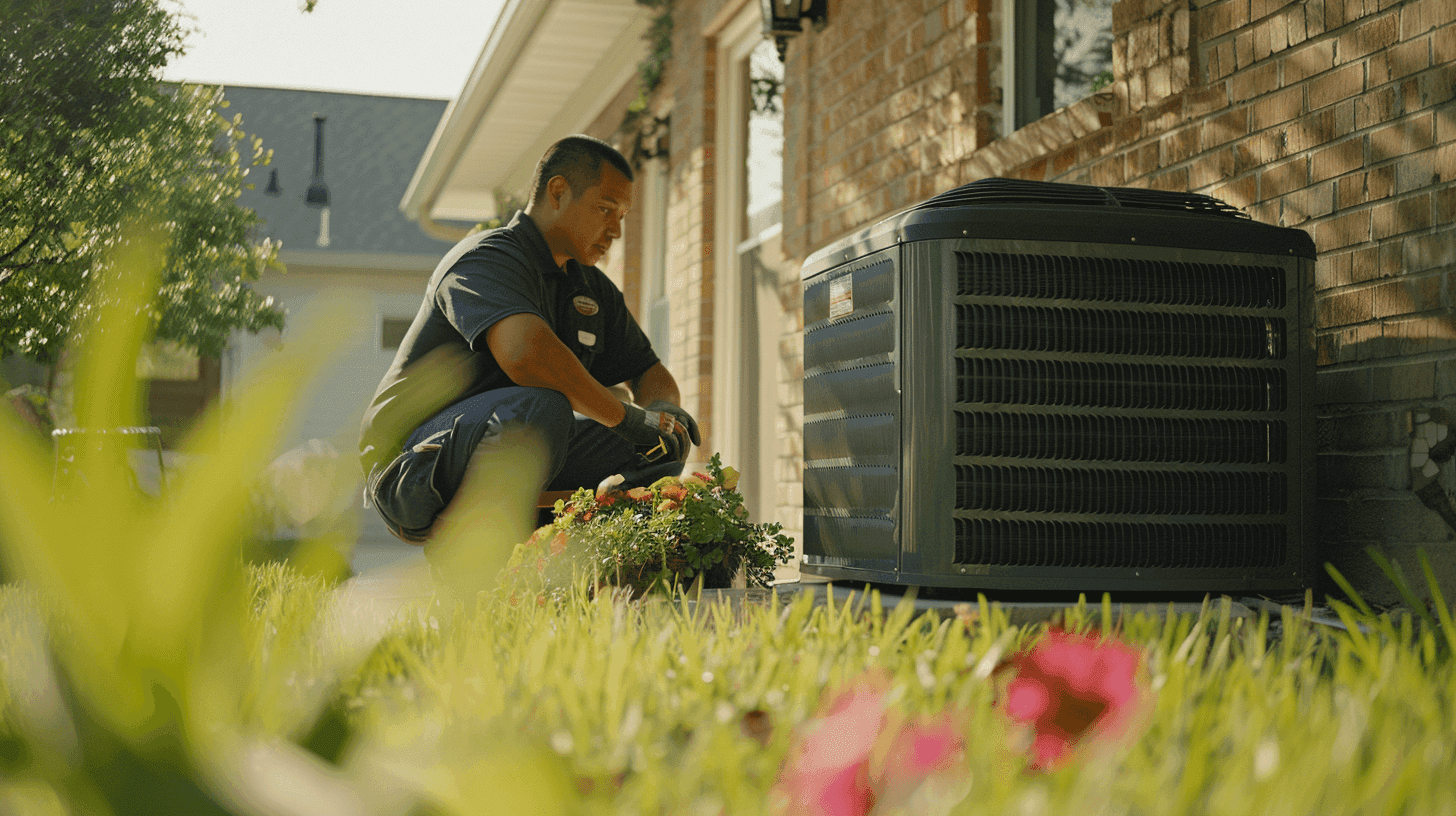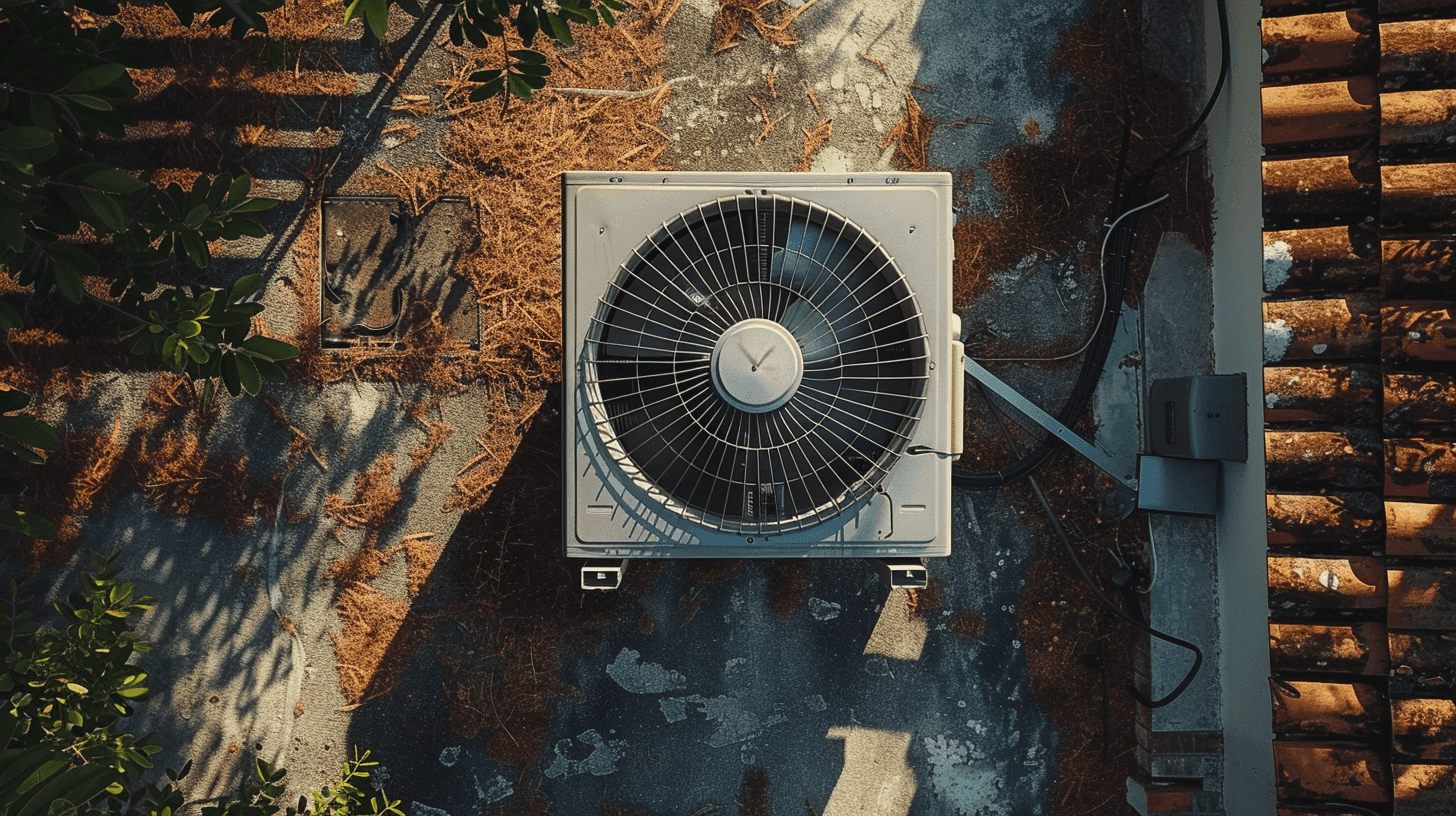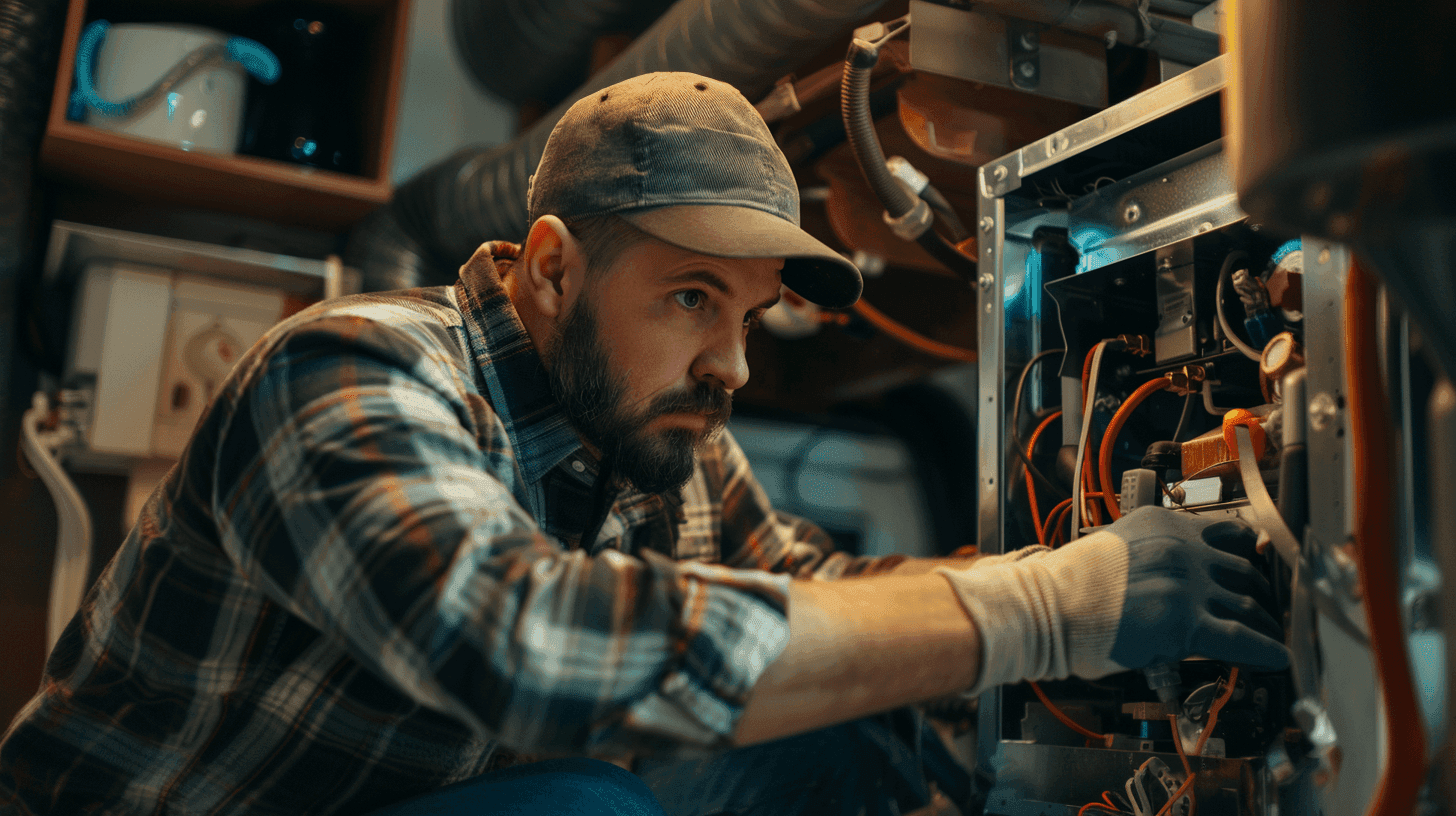
Heat Pump Not Cooling: The Most Common Problems and Solutions
Sharing your quote takes less than a minute
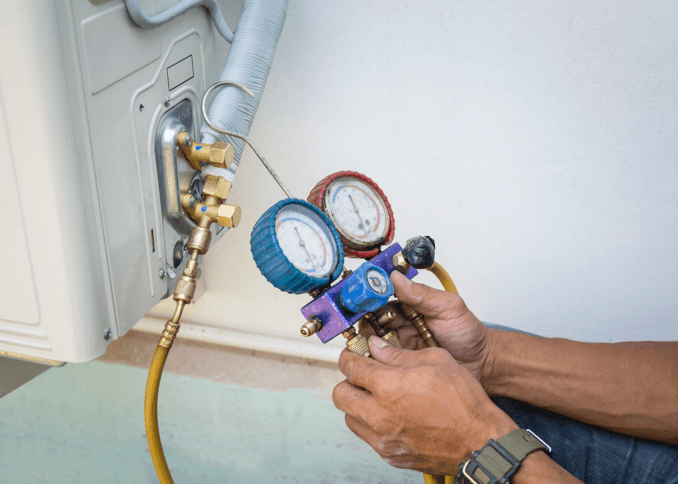
As summer temperatures ramp up, a heat pump not cooling your home is the type of problem you want to remedy right away to keep you and your family safe and comfortable. There are a number of problems that could cause your heat pump to malfunction, so we’re exploring the most common scenarios.
While we dive into why your heat pump won’t cool, keep in mind there are some fixes that can be performed with DIY methods; however, others need to be handled by a professional heat pump repair technician. If you do determine you need the expertise of a professional HVAC contractor, contact HVAC.com's customer concierge team which can connect you with a reputable HVAC technician in your area.
Consider whether one of these most common heat pump problems could be the culprit behind your disabled unit.
The 4 Most Common Heat Pump Problems
1. Heat Pump Not Turning On
If your heat pump won’t turn on at all, there are four likely causes to consider:
- Start with the thermostat. Ensure that the device is displaying correctly and is set to "cool" with the desired temperature below the home’s current indoor temperature. If you have a smart thermostat, check for any system error messages or alerts. The technology within these smart devices will often alert you to potential problems.
- Ensure the unit is receiving power. A heat pump demands a large amount of electricity to start up and maintain operation. If the unit pulls too much power at once, the circuit breaker can trip as a safety precaution. Check the electrical panel, and switch the heat pump breaker to "on" if necessary. If the breaker continues to trip itself off, there’s a bigger issue at play. Contact a heat pump technician right away for service.
- The heat pump start capacitor is broken. Take a moment to listen to your heat pump. If you can hear a faint clicking noise that occurs as the heat pump is supposed to turn on, your problem is likely with the start capacitor. This component holds an electrical charge that is released when the motor tries to start and helps the motor start with less effort. You’ll need to contact an HVAC technician to replace it.
- The reversing valve isn’t reversing. As the name suggests, a heat pump reversing valve allows the system to work as both a heater and an air conditioner by reversing the direction of the refrigerant. Most manufacturers design their systems to default to heat, meaning if the reversing valve is not working properly only heat will be delivered. However, there are a couple of brands that default to cooling. If your unit is only delivering warm or cool air, a technician will need to repair or replace the reversing valve.
2. Heat Pump Not Cooling
If your heat pump is not cooling, it may be one of a few problems. When your heat pump is not blowing cold air, the temperature in your home can rise quickly and create an uncomfortable environment. Some of the most common reasons a heat pump isn’t cooling include:
- Malfunctioning thermostat. Is the device set to "cool" with the desired temperature? If all the settings are correct, it’s possible the thermostat isn’t reading the indoor temperature correctly or an electrical problem is preventing the device from communicating with the heat pump. You’ll need a professional heat pump technician to fix either of these problems.
- The reversing valve is not working properly. If your heat pump is running, but the air coming out of your vents is hot, it’s likely a problem with your reversing valve.
- The components are dirty. When airflow is limited, the system cannot function properly. Lukewarm air expelling from your vents most likely points to dirty or clogged heat pump components or a clogged air filter. Remove debris from around the outdoor unit and check to see if your HVAC filter needs to be replaced.
- The refrigerant level or charge is low. If your refrigerant levels are too low or if there is a leak, your heat pump will struggle to cool your home. Routine heat pump maintenance is the best preventative measure for identifying refrigerant problems or potential leaks.
3. Heat Pump Running Constantly
A heat pump that’s running constantly will create a spike in your energy bill and shorten the lifespan of your unit. Some of the causes may be within your control. The most common reasons heat pumps don’t shut off include:
- The thermostat settings are extreme. It’s understandable that you want to keep your home cool in the summer and warm in the winter, but if the thermostat is set too high or low, the unit will work continuously to try to achieve your desired temperature. Turn your thermostat up or down a few degrees depending on the season to give your unit a break and lower your monthly energy bills.
- The air filter is dirty. Without a continuous flow of air, the heat pump can’t cool or heat your home efficiently. Filters typically need to be replaced every 90 days, but it’s good practice to check the cleanliness of your filter each month so you can replace it sooner if needed. Check your system’s owner’s manual for information about air filter change intervals.
- The compressor contactor is not working properly. The compressor contactor controls power to the compressor and the outdoor fan on your heat pump. If the compressor contactor is damaged, it’s possible your heat pump could run all the time. You’ll need a heating and cooling system professional to repair or replace the part.
4. Heat Pump Not Heating
During the summer, your primary concern is addressing any malfunctions that result in your heat pump not cooling. However, during the winter, explore these three main causes of a heat pump not blowing hot air:
- The unit is blocked. The heat pump pulls heat from the outside air into the system’s refrigerant, and the refrigerant carries that heat to the indoor coil to provide your home with heating. If the airflow to your unit is blocked by snow, ice, leaves, or another type of debris, this can make it hard for the heat pump to do its job. Luckily, the solution is simple. Clean off your heat pump and clear away any debris that may be blocking the way.
- Debris is clogging the air filter. Air filters are put in place to catch dirt and debris, but when too much builds up, it can block airflow to the indoor coil, which is responsible for heating the air. Routinely check your filter and change it out for a new one if it’s dirty.
- The refrigerant level or charge is low. If your refrigerant levels are too low, likely from a leak, your heat pump will struggle to bring enough heat indoors to heat your home. Have a professional come out to check if the levels are too low or if your system needs to be recharged. Refilling and recharging the refrigerant level must be done by an EPA-certified HVAC professional.
Trane Heat Pump Troubleshooting
Trane heat pumps are backed by one of the best warranties in the industry. When troubleshooting potential problems with a Trane unit, the manufacturer suggests ensuring your thermostat is set to 78 degrees in the summer and 68 degrees in the winter. This helps the unit complete its heating and cooling cycles quicker and avoids the heat pump from operating continuously. An overworked heat pump can cause high energy bills, breakdowns, and premature replacement.
A tripped circuit breaker or worn-out wiring could also be to blame for your Trane heat pump not working properly. A certified Trane dealer can inspect your unit for worn or defective wiring.
Trane also warns you could have a defective defroster timer or control module if you experience ice build-up on the outdoor coil of the heat pump.
Carrier Heat Pump Troubleshooting
Backed by a limited 10-year extended warranty if you register your product within 90 days, Carrier heat pumps come in several models. While the specific repair will depend on the type of unit you have, the manufacturer does offer some general troubleshooting tips if the heat pump won’t cool.
One of the most obvious signs of heat pump malfunction in the summer is a frozen indoor coil. If frost has started to form on the Carrier heat pump system, turn the unit off and allow it time to thaw. This process may take up to 24 hours without the help of a professional. It’s likely there is an airflow issue, which calls for an HVAC technician to make the repair.
Carrier also warns that a blown blower motor, defective fan motor, or compressor issue could be to blame for a heat pump failure.
Goodman Heat Pump Troubleshooting
Goodman heat pumps are noted for their energy efficiency and value for those sticking to a home improvement budget. There are a number of models to choose from, and homeowners can customize their warranty by purchasing extended coverage for the new unit.
Goodman suggests the best way to prevent heat pump problems is by scheduling seasonal maintenance visits with an HVAC expert. The manufacturer says the best upkeep plan includes a unit check-up in the spring and fall because heat pumps are used in the heating and cooling seasons.
Size also matters. Ensuring the heat pump is appropriately sized for your home will ensure heating and cooling cycles run appropriately and your energy bills are manageable.
Lennox Heat Pump Troubleshooting
Lennox heat pumps offer a wide scale of SEER ratings, models, and warranty options. Depending on what matters most to your family, several units are designed with ultra-quiet operating systems.
If any unit component fails, Lennox recommends starting with basic facts to determine if it’s best to repair or replace your broken heat pump. Knowing the age, cost of repair, and the current system’s energy efficiency will help you make the best investment decision for your home.
Mitsubishi Electric Heat Pump Troubleshooting
Mitsubishi is renowned for manufacturing some of the most reliable, innovative, and efficient heat pump systems on the market. Mitsubishi invented the ductless mini-split heat pump in 1959, so they have decades of experience manufacturing and working with heat pump systems.
Mitsubishi also stresses the importance of regular maintenance to prevent poor performance and untimely repairs. A savvy HVAC technician can often catch minor heat pump issues during a tune-up appointment and recommend the needed repair before it balloons into something bigger and more expensive to fix.
Mitsubishi also recommends cleaning or replacing air filters on a regular basis to keep them effective. Dirty and clogged air filters can negatively affect your home’s indoor air quality and the unit’s performance. Most of Mitsubishi’s multi-state allergen filters are removable and washable to simplify the process.
Some of the other top heat pump brands to consider include Ruud, Rheem, Bryant, American Standard, Coleman, York, and Amana.
Hire a Reputable Heat Pump Technician
If you’ve walked through the homeowner evaluation tips listed above but can’t determine why your heat pump won’t cool, it’s time to call on a professional HVAC technician.
When hiring an HVAC company to perform heat pump repair service or heat pump installation, do your homework. Look for an HVAC contractor with stellar online reviews on sites such as Angi, Yelp, and Google Reviews. Also, verify the heating and cooling company has the necessary licenses and certifications required in your state and provides insurance in case of an accident.
By taking the time to find a trustworthy HVAC technician, you can have peace of mind knowing that your heating and cooling system is in capable hands, providing optimal comfort and energy efficiency for your home.
HVAC.com Can Help You Buy With Confidence
Worried about overpaying for your next HVAC project? HVAC.com delivers comprehensive HVAC quotes within 24 hours, giving you peace of mind to move forward with confidence. Utilizing data from thousands of HVAC quotes, we’ve established fair pricing to save you time, money, and frustration.
FAQs on Heat Pump Problems
What is the most common problem with heat pumps?
One of the most common problems with heat pumps is leaking refrigerant. Your heat pump system needs refrigerant to provide both heating and cooling. When the refrigerant level is low, typically caused by a leak, the system will struggle to meet the temperature setting.
What is the lifespan of a heat pump?
The lifespan of a heat pump is about 15 years, but they may exhibit issues after 10 years if regular maintenance and timely repairs aren’t performed. The climate in which you live and how frequently the system is used also affect the overall life expectancy of heat pump systems.
What problems affect a heat pump’s air handler?
A common problem with a heat pump's air handler occurs when your system’s fan is running, but only cold air is coming out. If you’re hearing rattling noises from your system, it may also be the air handler.
How do I diagnose heat pump problems?
You can diagnose heat pump problems by first checking that the thermostat is working correctly and inspecting the condition of the air filter. Clogged and dirty air filters can cause heat pumps to provide inefficient airflow. However, the best way to diagnose and treat any heat pump problems is to call in a local heat pump professional.
Sharing your quote takes less than a minute
